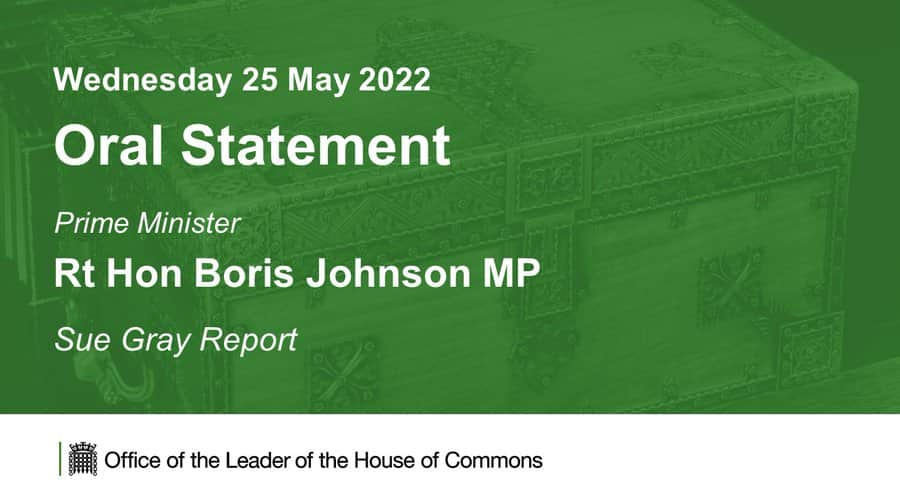Conclusions from Sue Gray’s report
Here are Sue Gray’s conclusions. They are similar in tone to the conclusions of her interim “Update” published in January but there is new detail about how security and cleaning staff were treated by officials in No 10. “I was made aware of multiple examples of a lack of respect and poor treatment of security and cleaning staff,” Gray says.
The general findings set out in my update of 31st January 2022 still stand.
Whatever the initial intent, what took place at many of these gatherings and the way in which they developed was not in line with Covid guidance at the time. Even allowing for the extraordinary pressures officials and advisers were under, the factual findings of this report illustrate some attitudes and behaviours inconsistent with that guidance. It is also clear, from the outcome of the police investigation, that a large number of individuals (83) who attended these events breached Covid regulations and therefore Covid guidance.
I have already commented in my update on what I found to be failures of leadership and judgment in No 10 and the Cabinet Office. The events that I investigated were attended by leaders in government. Many of these events should not have been allowed to happen. It is also the case that some of the more junior civil servants believed that their involvement in some of these events was permitted given the attendance of senior leaders. The senior leadership at the centre, both political and official, must bear responsibility for this culture.
In my update I made a number of general limited findings, I am pleased progress is being made in addressing the issues I raised. I commented on the fragmentary and complicated leadership structures in No 10. Since my update there have been changes to the organisation and management of Downing Street and the Cabinet Office with the aim of creating clearer lines of leadership and accountability and now these need the chance and time to bed in.
I found that some staff had witnessed or been subjected to behaviours at work which they had felt concerned about but at times felt unable to raise properly. I was made aware of multiple examples of a lack of respect and poor treatment of security and cleaning staff. This was unacceptable. I am reassured to see that steps have since been taken to introduce more easily accessible means by which to raise concerns electronically, in person or online, including directly with the Permanent Secretary in No 10. I hope that this will truly embed a culture that welcomes and creates opportunities for challenge and speaking up at all levels.
I also made a recommendation that steps should be taken to ensure that every Government Department has a clear and robust policy in place covering the consumption of alcohol in the workplace. Since then guidance has been issued to all Government Departments.
The matter of what disciplinary action should now take place is outside of the scope of this report and is for others to consider. Nothing set out in this report can be taken as constituting a disciplinary investigation or findings of fact appropriate for such a purpose. However, I do offer a reflection: while there is no excuse for some of the behaviour set out here it is important to acknowledge that those in the most junior positions attended gatherings at which their seniors were present, or indeed organised. I have no doubt that they will have taken the learning from this experience and, while this is not a matter for me, I hope this will be taken into account in considering any disciplinary action.
Many will be dismayed that behaviour of this kind took place on this scale at the heart of Government. The public have a right to expect the very highest standards of behaviour in such places and clearly what happened fell well short of this. It is my firm belief, however, that these events did not reflect the prevailing culture in Government and the Civil Service at the time. Many thousands of people up and down the country worked tirelessly to deliver in unprecedented times. I remain immensely proud to be a civil servant and of the work of the service and the wider public sector during the pandemic.
![]()




